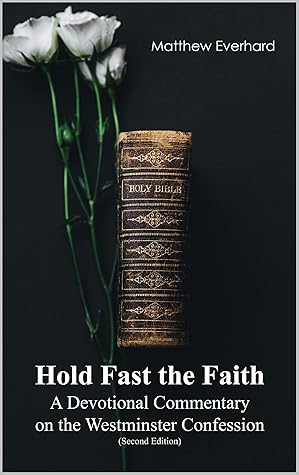Kindle Notes & Highlights
Read between
August 21 - October 16, 2024
Spiritual formation is a believer’s life-long process of growing more and more like God’s Son Jesus Christ, through the power of the Holy Spirit.
Sanctification is understood to begin at the moment of conversion and describes the Holy Spirit’s continual drawing of the believer into greater and greater intimacy with God the Father.
Your mission for the remaining days of your life is to draw closer to God, increase your intimacy with Him, enjoy His presence, and be transformed into a living representative of Jesus Christ.
Prayer, study of Scripture, fasting, solitude, silence, meditation and other life-habits that we discover can all be very beneficial to help us in yielding to the Spirit’s guidance.
Confessions are essentially concise summations of the Church’s doctrine.
Creeds then, help modern believers to remain humble while avoiding what C.S. Lewis called “chronological snobbery,” that is, the belief that one’s own generation is somehow superior to all those who have gone before it.
Reformed theology is, if anything, biblical theology.
If we find that we have created such a full schedule that we cannot follow hard after God, perhaps we need to make adjustments to our priority list in order that we might better make time for our Maker, Redeemer, and Master.
God often removes His hand of comfort, even from believers, so that the fullness of their dependence may be revealed in times of duress.
Often when we feel secure in our selves, perceiving that we are in no state of danger, we are prone to the pitfalls of sin, the temptations of the flesh, and subtle tendencies toward self-reliance and self-sufficiency.
Have you ever stopped to think that Christ demonstrated His love for us, not only by dying for us (Romans 5:8) but also by living perfectly in order to fulfill the covenant of works on our behalf?
Leo concluded regarding these two natures, “The one is resplendent with miracles, the other submits to insults.”[35]
That two natures (divine and human) co-exist in the same person, Jesus Christ, has been called the hypostatic union.
Another of the most basic and important facets of spiritual formation is to learn to contemplate the death and resurrection of Jesus Christ.
To sum up, our minds cannot lay hold of life with sufficient eagerness, or accept it with suitable gratitude, unless we have first been made afraid of divine anger and the thought of eternal death.
To recap; the will was completely free in the Garden, then bound to sin due to Adam’s fall; regenerated (yet still depraved) at conversion, and will one day be completely renovated at our death, or the Lord’s return.
Fasting is a gift of God, a tool of spiritual formation, by which we deprive ourselves of some of our human dependencies and needs, so that we may be filled with the Spirit in greater measure, and thereby become sensitive to His call and direction.
In today’s reading, which is intricately tied to the previous chapter, we note that the broken and sin-inclined human will is no longer able to choose or discern that which is holy. Thus, prior to our conversion, we were not able to make the final decision to trust in Jesus Christ as our Savior until He prepared us to do so.
Much of living the Christian life is learning to continually look upward toward God, moment by moment.
We must understand that we are living in His world, rather than He intervening occasionally in ours.
To suffer well, I believe, would be to endure all types of hardship while never forgetting, forfeiting, or relinquishing our identity in Christ; and giving thanks for it all.
John R. W. Stott defines the Greek word sarx this way, “By sarx (flesh) Paul means neither the soft muscular tissue which covers our bony skeleton, nor our bodily instincts and appetites, but rather the whole of our humanness viewed as corrupt and unredeemed.”[46]
“Law” is properly any command that is required of us (imperatives), while grace is anything God has done for us (indicatives). Any confusion here, and we will soon be on the road to legalism (salvation by law-keeping) or antinomianism (despising moral restraints altogether).
Thus, like caution signs on a dangerous pass, the moral law has the power to warn us about the catastrophic repercussions of driving off the cliff, but they cannot save us once we fall. For salvation, we need grace, we need the cross.
When the fulcrum of the scale is set directly on the aim of glorifying God with one’s life, the perfect balance will be struck.
Remember: the point of prayer is not so that we can inform God of what is going on down here on Earth. He already knows that; He is omniscient. The point of prayer is so that His own people can learn to develop the heart of Jesus for His Kingdom.
As we have stated, the definition of a sacrament is “an outward sign and seal of an inward grace.”
Our fear is not that we would ourselves be condemned, but we fear that we would live in such a way that the honor of God is tarnished. Similarly, we tremble not because we are afraid of punishment, but with the ground-shaking responsibility of carrying His name-plate on our hearts.
A man or woman who fears the Lord with a godly fear continues to step out into the world with boldness for the name of Jesus Christ, confident of His completed work on the cross, passionate for the magnitude of His glory, enraptured with a sense of the majesty and holiness of His nature.


